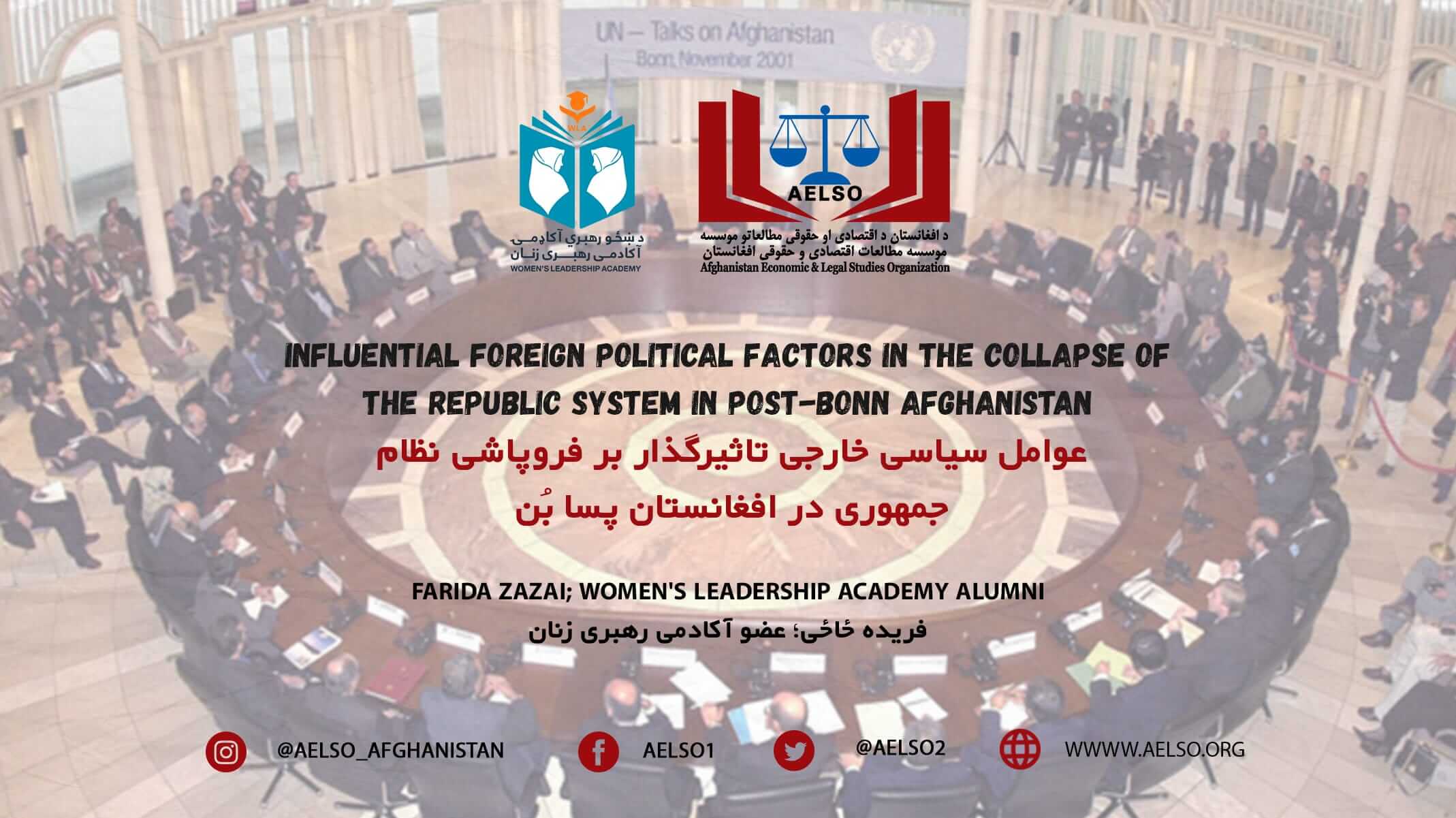
Influential Foreign Political Factors in the Collapse of the Republic System in Post-Bonn Afghanistan
Afghanistan opted for a republican system over traditional emirate and monarchy systems, enabling Afghan citizens to directly elect the head of state. Despite over 20 years of financial and military support from the global community and the expenditure of billions of dollars to establish a stable and sustainable government, the republican system established after the Bonn Conference collapsed into the hands of the Taliban. Consequently, the question arises: “What were the influential external factors in the collapse and inefficiency of the republican system in post-Bonn Afghanistan?” This current research aims to identify influential external political factors that led to the failure and collapse of the republican system in post-Bonn Afghanistan. The research employs a mixed-method approach, utilizing quantitative methods by obtaining data (self-constructed questionnaire) from academic and civil society communities, and qualitative methods through a descriptive-analytical approach in examining the influential external factors contributing to the collapse. Research Methodology: The aforementioned issue is explored within the framework of failed, weak governments, and security dilemma theory. The research findings indicate a bankrupt government and republican system in Afghanistan, where regardless of the internal and external reasons and their creation, none of them alone could have caused this event or its extensive effects (the collapse of the post-Bonn republic). Therefore, it is necessary to view this set of factors collectively and analyze them accordingly. However, this article solely focuses on examining external factors.
Keywords: Afghanistan, collapse, external factors, United States, neighbors, United Nations